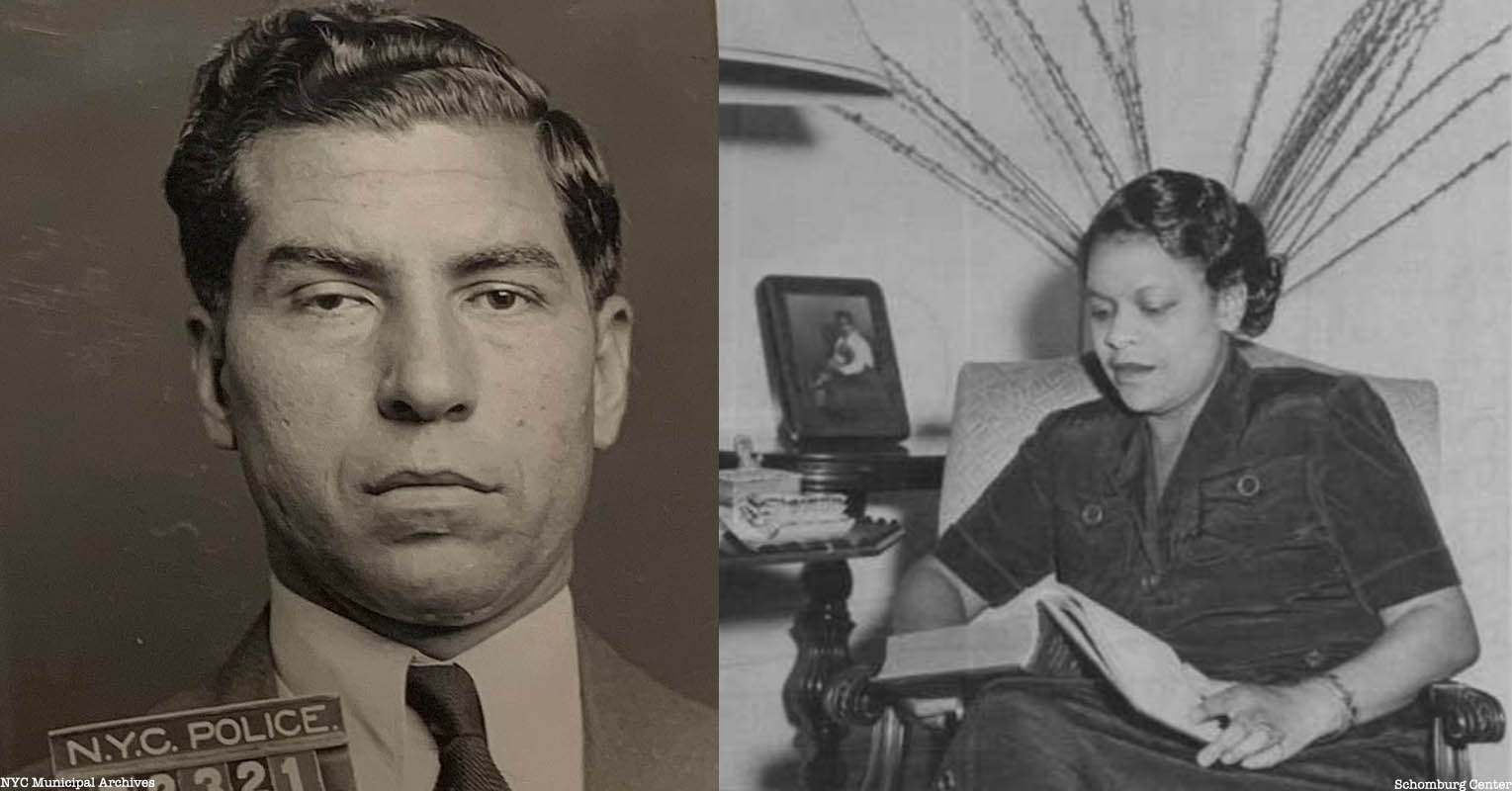Lucky Luciano

In the annals of organized crime history, few names resonate as deeply as that of Lucky Luciano. Born Salvatore Lucania on November 24, 1897, in Lercara Friddi, Sicily, Luciano would rise to become one of the most influential and notorious figures in the underworld of New York City during the early to mid-20th century. His life story is one marked by ambition, ruthlessness, and a keen intellect that allowed him to navigate the treacherous waters of organized crime with unparalleled success.
Luciano’s journey from humble beginnings to the heights of power in the criminal underworld is a testament to both his cunning and his adaptability. Born into poverty in Sicily, he immigrated to the United States with his family at a young age, settling in New York City’s Lower East Side. It was here that he would first become acquainted with the world of crime, running errands for neighborhood gangs and participating in petty thefts.
As he grew older, Luciano quickly recognized the opportunities that existed within the burgeoning world of organized crime. He began to associate with more powerful figures in the underworld, including the likes of Meyer Lansky and Bugsy Siegel. Under their tutelage, Luciano honed his skills as a racketeer, learning the intricacies of bootlegging, gambling, and prostitution.
However, it was Luciano’s visionary approach to organizing crime that truly set him apart from his contemporaries. In the early 1930s, he spearheaded the formation of “The Commission,” a governing body comprised of leaders from various crime families across the United States. This unprecedented alliance served to resolve disputes, coordinate criminal activities, and ensure the smooth operation of illicit enterprises on a national scale.
Luciano’s leadership of The Commission marked a watershed moment in the history of organized crime, ushering in an era of unprecedented cooperation and profitability for the syndicates involved. Under his guidance, the mafia would expand its influence into legitimate businesses, infiltrating industries such as labor unions, construction, and even Hollywood.
But Luciano’s reign at the top of the criminal underworld was not without its challenges. In 1936, he was convicted on charges of compulsory prostitution and sentenced to 30 to 50 years in prison. Despite his incarceration, however, Luciano continued to exert influence over the operations of the mafia, orchestrating deals and managing affairs from behind bars.
It was during his time in prison that Luciano would make perhaps his most significant contribution to the world of organized crime. In exchange for his assistance during World War II, he was granted parole and deported to Italy in 1946. This move effectively severed his ties to the American mafia, allowing him to establish himself as a powerful figure in the European underworld.
In Italy, Luciano wasted no time in forging connections with local crime syndicates and political figures, leveraging his knowledge and resources to expand his influence across the continent. He operated lucrative narcotics and gambling rackets, while also cultivating relationships with high-ranking officials and intelligence agencies.
Despite his success in Europe, Luciano would never fully regain the level of power and influence he had enjoyed in the United States. He spent his remaining years in relative obscurity, plagued by legal troubles and health issues. He died of a heart attack on January 26, 1962, at the age of 64, leaving behind a complex and controversial legacy.
To some, Lucky Luciano was a visionary entrepreneur who revolutionized the world of organized crime, bringing order and profitability to an otherwise chaotic and violent underworld. To others, he was a ruthless and amoral gangster, responsible for untold suffering and violence in pursuit of his own selfish ambitions.
In truth, Luciano’s legacy is a complex and multifaceted one, reflective of the contradictory nature of the criminal underworld itself. He was a man of great intelligence and charisma, capable of inspiring loyalty and fear in equal measure. His influence can still be felt in the operations of organized crime syndicates around the world, a testament to the enduring impact of his life and career.
In the end, Lucky Luciano remains an enigmatic figure, a larger-than-life character whose exploits continue to captivate the imaginations of both historians and storytellers alike. Whether viewed as a hero or a villain, there can be no denying the indelible mark he left on the world of organized crime, forever earning his place in the annals of history.





